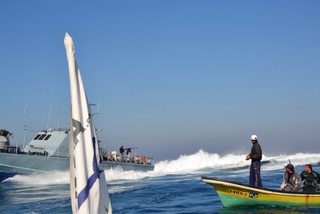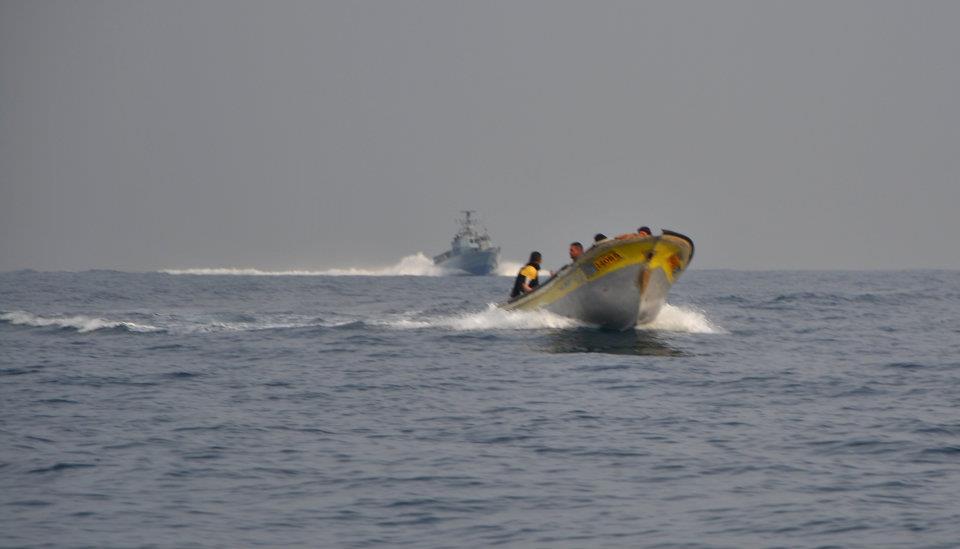Tag: Naval Blockade
-
A call from Gaza fishermen
11 January 2012 | Besieged Gaza, Occupied Palestine >Do not forget Palestinian fishermen who are prevented from fishing beyond the unilaterally imposed Israeli limit of 3 nautical miles and whose life is constantly under threat from the Israeli Naval Forces. We are waiting for you to lift the naval blockade imposed on the Gaza Strip…
-
Israeli navy attacks international observers, injures Palestinian, on monitoring boat in Gaza waters
28 December 2011 | Civil Peace Service Gaza At 10:55 am, an Israeli naval warship attacked the international observers and Palestinian captain of the Civil Peace Service Gaza (CPSGAZA) boat Oliva, injuring its captain in an apparent attempt to capsize it. “The Israeli navy passed near us and the fishermen, and started to go around…
-
Israeli navy harasses Palestinian fishermen off Gaza coast
by Rosa Schiano 21 December 2011 | Civil Peace Service Gaza The Oliva sailed from Gaza Seaport at 8:15 am. The Palestinian captain and two international observers from CPS staff were on boardAt 8:45 am Oliva reached four hasakas in the north of the Strip, about 2.2 nautical miles off shore (31° 35.40N / 034°…



